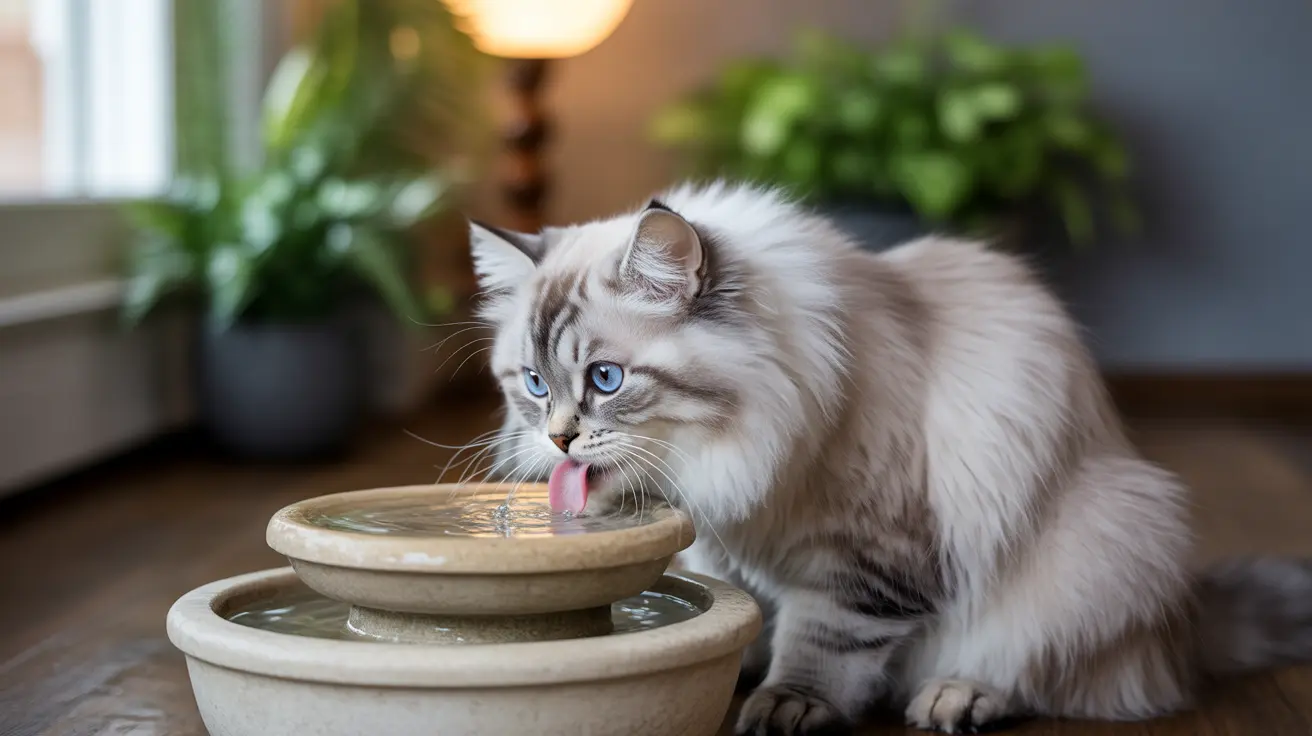When your beloved feline companion is diagnosed with kidney failure, understanding the available treatment options becomes crucial for providing the best possible care. This comprehensive guide will walk you through effective treatments, management strategies, and ways to maintain your cat's quality of life while dealing with kidney disease.
Kidney failure in cats, particularly chronic kidney disease (CKD), affects up to 40% of senior cats over 10 years old. While this condition can't be cured, proper treatment and management can significantly extend your cat's life and maintain their comfort. Let's explore the essential aspects of treating feline kidney failure.
Understanding the Diagnosis and Early Signs
Early detection of kidney failure is crucial for effective treatment. The initial signs often include:
- Increased thirst and urination
- Decreased appetite
- Weight loss
- Lethargy
- Vomiting
- Poor coat condition
Your veterinarian will conduct blood tests, measuring BUN and creatinine levels, along with urinalysis to determine the stage of kidney disease and develop an appropriate treatment plan.
Essential Components of Kidney Disease Treatment
Dietary Management
A specialized renal diet is fundamental in treating cat kidney failure. These prescription diets are specifically formulated with:
- Restricted protein levels to reduce kidney workload
- Lower phosphorus content
- Increased B-vitamins
- Added omega-3 fatty acids
- Enhanced caloric density
Your veterinarian may recommend brands like Royal Canin Renal Support or Hill's k/d, which have been clinically proven to extend survival times in cats with kidney disease.
Hydration Therapy
Maintaining proper hydration is critical for cats with kidney failure. Treatment options include:
- Subcutaneous fluid administration at home
- Multiple water bowls placed throughout the house
- Pet water fountains to encourage drinking
- Adding water to wet food
- Regular monitoring for dehydration signs
Medication Protocol
Various medications may be prescribed depending on your cat's specific needs:
- Phosphate binders
- Anti-nausea medications
- Blood pressure medications
- Potassium supplements
- Appetite stimulants
- Erythropoietin for anemia
Monitoring and Ongoing Care
Regular veterinary check-ups are essential for monitoring disease progression and adjusting treatment plans. Your vet will track:
- Blood pressure
- Kidney values
- Electrolyte levels
- Body weight and muscle condition
- Overall quality of life
Frequently Asked Questions
What are the best foods to feed a cat diagnosed with kidney failure?
The best foods are prescription renal diets specifically formulated for cats with kidney disease. These include brands like Royal Canin Renal Support, Hill's k/d, and Purina NF. These diets contain controlled levels of protein, phosphorus, and sodium, while providing adequate calories and essential nutrients.
How do I know if my cat is getting enough water with kidney disease?
Monitor your cat's hydration by checking skin elasticity, gum moisture, and energy levels. Track water bowl levels and urine output. Your cat should be drinking more than usual, and urine should be light-colored. If concerned, consult your veterinarian about fluid therapy.
What medications or supplements are commonly prescribed for cats with kidney failure?
Common medications include phosphate binders, anti-nausea drugs, blood pressure medications, potassium supplements, and appetite stimulants. Your veterinarian will determine the specific combination based on your cat's symptoms and disease stage.
Can cats with chronic kidney failure still live a good quality of life, and for how long?
Yes, cats with kidney failure can maintain a good quality of life with proper treatment. Survival times vary greatly depending on disease stage at diagnosis and treatment compliance, ranging from months to several years with appropriate care.
Do I need to give my cat subcutaneous fluids at home, and how do I do it safely?
The need for subcutaneous fluids depends on your cat's disease stage and specific condition. If required, your veterinary team will provide detailed training on proper administration technique, including sterile handling, proper insertion sites, and monitoring for complications.
Conclusion
While cat kidney failure is a serious condition, proper treatment and dedicated care can help maintain your cat's quality of life. Work closely with your veterinarian to develop and adjust the treatment plan as needed, and remember that each cat's journey with kidney disease is unique. With patience and proper management, many cats can live comfortably for extended periods despite their diagnosis.






